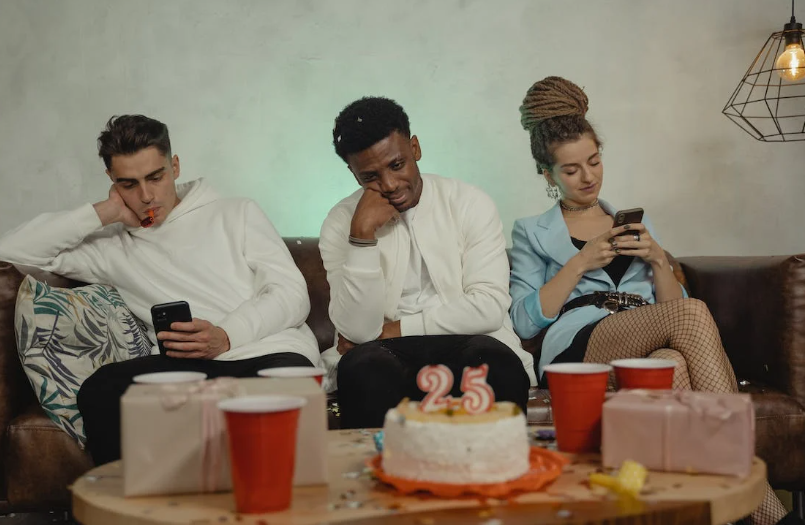There are many reasons why people feel uncomfortable turning down invites to social events. We crave connection, fear missing out on a good time and assume we’re hurting other people’s feelings by saying no. But sometimes, turning someone down is unavoidable, and saying yes to everything can lead to burnout.
There’s also the problem of attending things just because you feel obligated. Then, you wind up having a bad night when you could have stayed home and watched TV or read a book.
A recent study found that 77% of people confessed to accepting an invitation to an event they didn’t want to attend because they were nervous that they’d upset the person who invited them. The good news is that the same study found that people are a lot less bothered when we say no to them than we assume.
So now you can feel less guilty about avoiding social events you don’t want to attend whether it’s a family function, work happy hour a birthday party for some kid that your child hardly knows.
A recent study published by the American Psychological Association experimented on over 2,00 participants to find out how people feel after being rejected.
Researchers discovered that when participants imagined refusing a friend’s invitation, they often thought it would immediately harm their relationship. They believed their friend might feel upset, disappointed and hesitant to invite them again. Those who envisioned rejecting the invitation were more inclined to think their friend would dwell on the refusal rather than understanding the decision-making process behind it.
However, researchers found that wasn’t the case.
“Across our experiments, we consistently found that invitees overestimate the negative ramifications that arise in the eyes of inviters following an invitation decline,” Julian Givi, PhD, an assistant professor at West Virginia University, told the American Psychological Association. “People tend to exaggerate the degree to which the person who issued the invitation will focus on the act of the invitee declining the invitation as opposed to the thoughts that passed through their head before they declined.”
The researchers performed a similar study with couples and, once again, found that those who turned down the invite thought their partner would be more upset than they actually were.
“While there have been times when I have felt a little upset with someone who declined an invitation, our research gives us quite a bit of good reason to predict people overestimate the negative ramifications for our relationships,” Givi said.
Givi also says people should feel okay about declining invitations when busy, to avoid psychological burnout.
“Burnout is a real thing, especially around the holidays when we are often invited to too many events,” he said. “Don’t be afraid to turn down invitations here and there. But, keep in mind that spending time with others is how relationships develop, so don’t decline every invitation.”
This study should be good news to all the people-pleasers out there who often go to social engagements because they don’t they don’t want to hurt other people’s feelings. It’s also great news for those who feel a tremendous sense of guilt every time they turn down an invite.







































